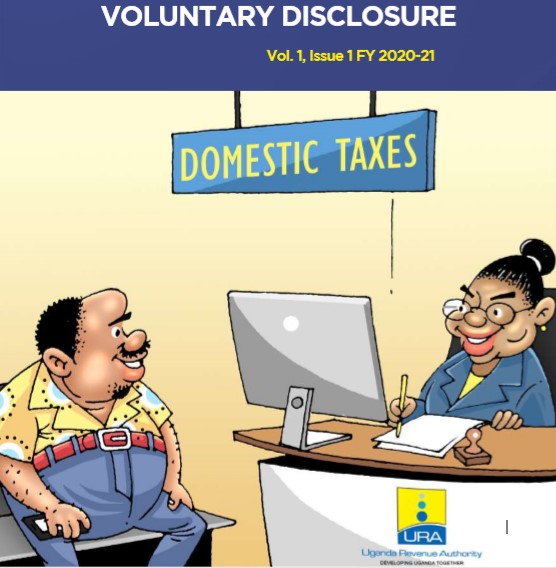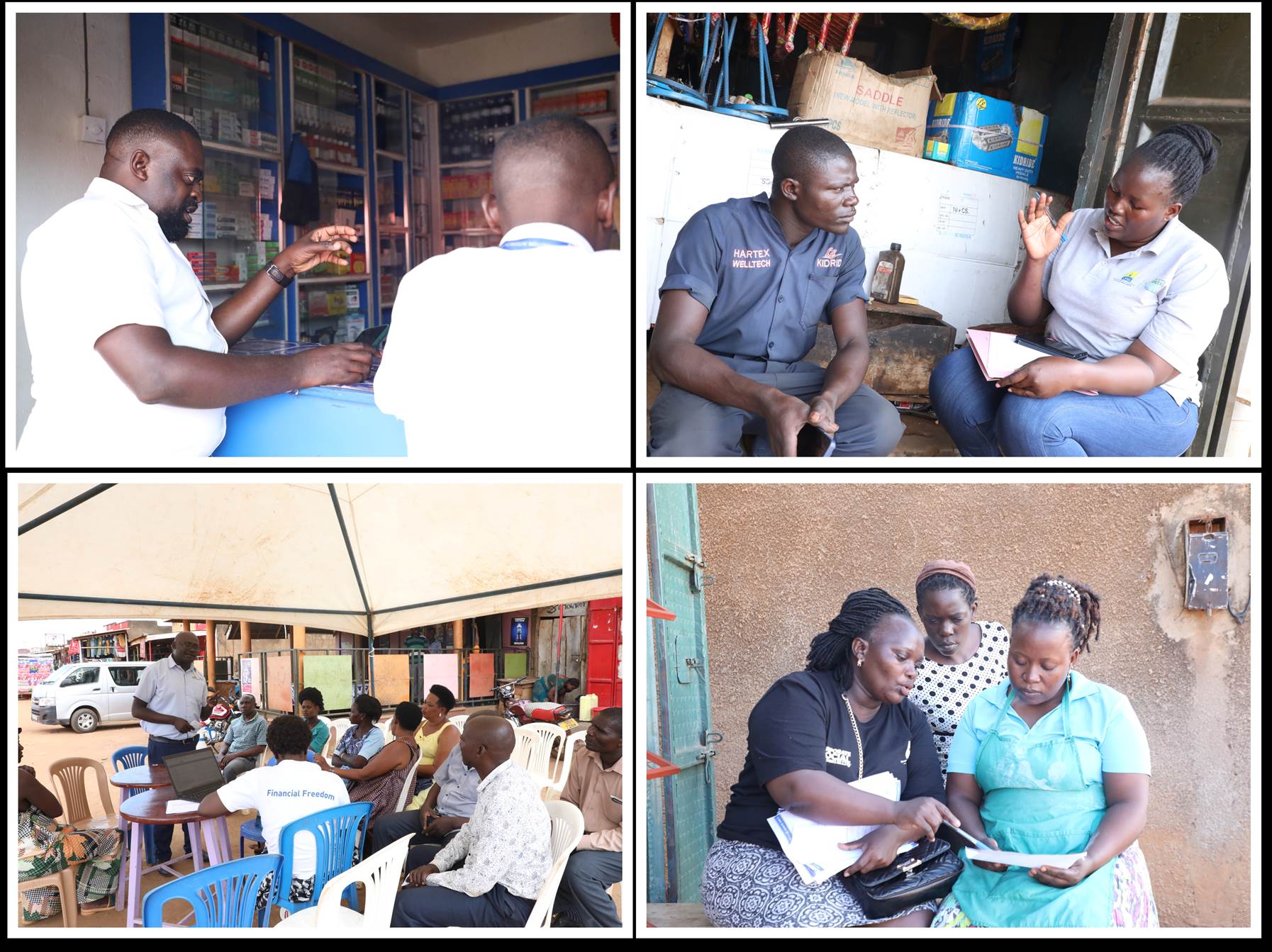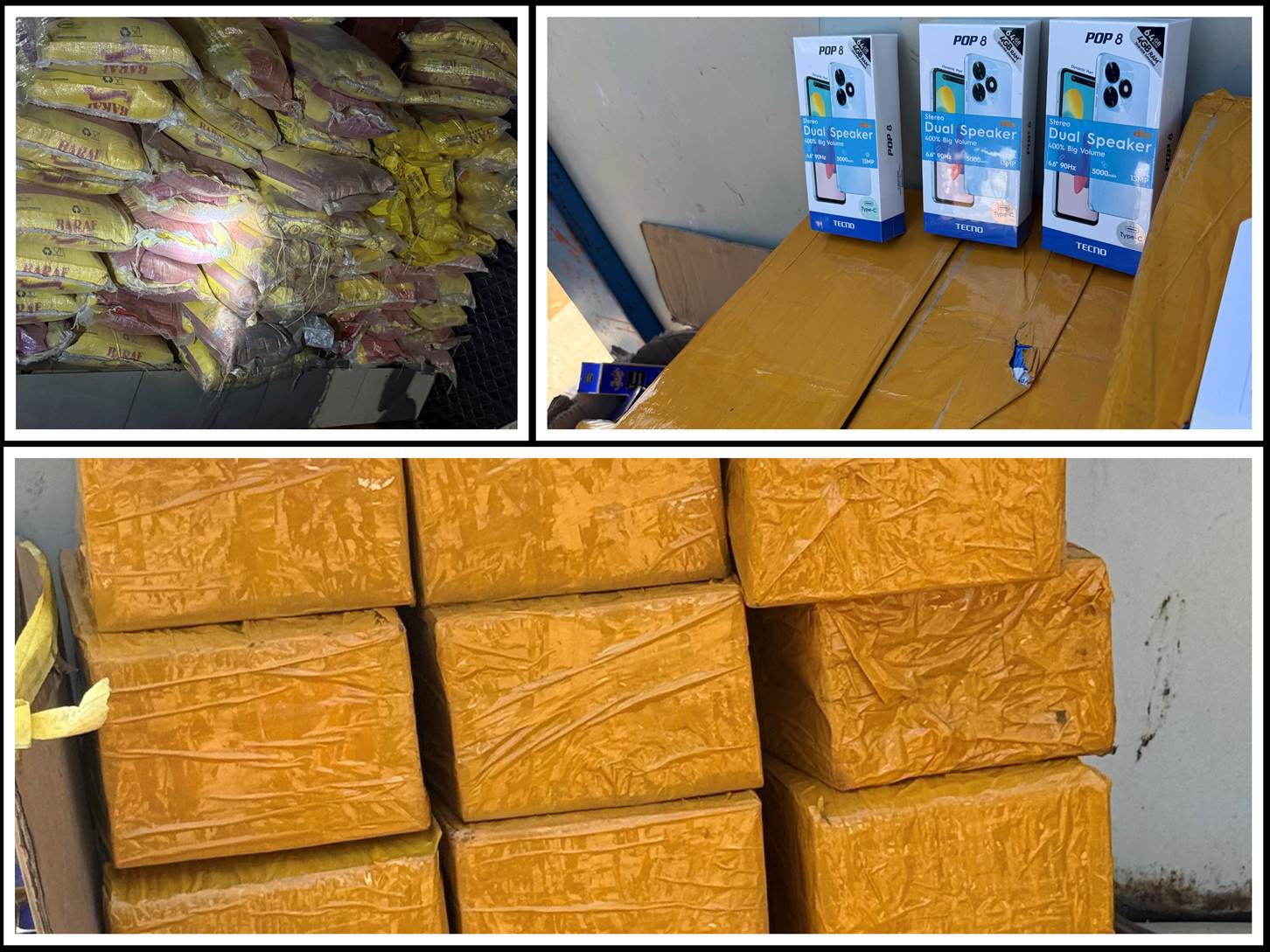Voluntary disclosure is a process where the taxpayer discloses information related to tax liabilities, misstatements or omissions his or her tax declarations to Uganda Revenue Authority (URA) without being prompted by any action or threat of action by URA.
Such actions include; initiation of a tax investigation, a request for tax information, a tax advisory letter, a tax health check/review, a Notice of audit, a tax query or compliance visit by URA officers.
Voluntary Disclosure also covers persons engaged in income generating activities who are not yet registered or whose registration details are inaccurate. Those who voluntarily register for taxes can apply and will be required to pay only the principal tax due for the period of their noncompliance.
Please note that;
- A voluntary disclosure must be complete and accurate, covering all relevant periods where there was previously inaccurate, incomplete or unreported information regarding the taxpayer’s affairs
- A taxpayer who is subject to ongoing compliance action in respect of a given tax head and a particular tax period may nonetheless make voluntary disclosure in relation to a different tax head in the same or different period or the same tax head in a different period. This is allowed provided that the information that is disclosed would not inevitably have been discovered by the ongoing compliance action
For example, a taxpayer whose VAT books of accounts are being audited for the FY 2020/2021 may still make a valid voluntary disclosure of income tax liability for the same financial year or VAT for the previous FY 2019/2020
Yes. Section 66(1a) of the Tax Procedures Code Act (TPCA) provides for preferential treatment for taxpayers who make a voluntary disclosure of non-compliance with tax laws.
A taxpayer who voluntarily discloses any tax that should
have been declared to the Commissioner, may enter into an agreement with the Commissioner to pay the outstanding unpaid tax and that person shall not be required to pay any interest or fine due.
Voluntary Disclosure covers penalties and interest under the following laws:
- The Income Tax Act. Cap 340
- The Value Added Tax Act. Cap 349
- The Excise Duty Act, 2014
- The Stamp Duty Act, 2014
- The Lotteries & Gaming Act, 2016
- The Tax Procedures Code Act, 2014
The main reason for the Voluntary Disclosure Program is to enable the taxpayer to return to full compliant status with respect to legal obligations. URA found out that many taxpayers not have complied and need to apply for the voluntary disclosure program. This was exhibited through;
- Issuance and purchase of fictitious invoices or fake invoice to claim input tax
- Misrepresentation of the loan portfolio for example claim to have borrowed money and claim interest
- Misrepresentation of overseas entities in domestic transactions
- Omitting from a statement made to a tax officer any matter or thing without which the statement is false or misleading in a material particular eg misrepresenting employee benefits
- Abuse of Tax Identification Number (TIN) – impersonation, duplicate
TIN, false TIN
- Misclassification and undervaluation of imports
- Inflation of expenses
- Suppression of gross profit margin
- Perpetual late filing
- Mismatch between sales and export value
- Mismatch between sales declared for VAT and income tax purposes
- Mismatch between payments from third parties (including government) and declared income
- Frequent importers with the only declared source of income as employment
- Importers not up to date with domestic taxes obligations for example liable for VAT registration and still not VAT registered
- Persons earning taxable income and not registered for tax
- Under declaration of rental income
- Lumping up supplies including tenants
- Avoid paying a penalty
- Avoid paying interest
- Have a fresh start
- Create dialogue with URA team and gain more understanding and information on how to deal with taxes
- The taxpayer fills out the Voluntary Disclosure Form (VDF) from the
URA web-portal;
- The taxpayer fills in the form specifying the following:
- The full particulars of the taxpayer including name, business name, TIN (for registered taxpayers), address (Physical location, and postal address) telephone/ fax number and Email address
- The nature of the offence committed
- The period to which the disclosure relates
- Complete disclosure of all information about the misstatements or omissions to allow all the facts to be verified. All relevant documentation relating to the disclosure should be attached
- A declaration that the information given entails a full disclosure
- Full name and signature of the person making the disclosure. (Note: for Partnership or Corporate organizations, particulars of the authorized person(s) should be included)
- The taxpayer makes payment of the principal tax due and attaches the Payment Registration Number (PRN) form highlighting the payment made
- The taxpayer submits the form to any URA office near them or online via email to services@ura.go.ug
- The Commissioner General ascertains the taxpayer’s total liability connected to the offence committed including interest and penalties
- The Commissioner General ascertains that the taxpayer has unequivocally acknowledged committing the offence
- The Commissioner General ascertains that no action by URA such as a request for information, an advisory, notice of audit, query, visit by compliance officers or anything similar to this has prompted the disclosure
- The Commissioner General ascertains that there is no pending investigation into the taxpayer’s affairs related to the offence disclosed
- Where the Commissioner General has confirmed that the application qualifies for the voluntary disclosure program, he or she issues a Voluntary Disclosure Certificate to the taxpayer. Where the Commissioner General ascertains that the taxpayer does not qualify for the voluntary disclosure program, he or she issues a rejection to the taxpayer
The Commissioner General has prescribed a Voluntary Disclosure Form (VDF) to be used for purposes of making Voluntary Disclosures, and any person applying under the Voluntary Disclosure Program will be required to fill the VDF. This form is available on the URA web-portal for free.
The taxpayer may be required to submit a return or amend an existing return subsequent to submission of the VDF or the taxpayer may be issued with an assessment of the tax disclosed for purposes of ledger reconciliation.
Once the taxpayer has paid the principal tax on the assessment arising from voluntary disclosure, the Commissioner General issues a signed Voluntary Disclosure Certificate (VDC) to the taxpayer. The certificate will include the following:
- The taxpayer’s name
- The offence committed
- The sum of money paid, and the date of payment
- The fact that the VDC is not subject to any appeal
- The fact that the VDC may be enforced in the same manner as a decree of any court for the payment of the amount stated in the order and;
- The fact the production of the VDC to any court, is treated as proof of the conviction of the offender for the offence specified
- The Disclosure should not be limited to select errors or omissions or to specific taxation years or reporting periods
- The disclosure must be of full and accurate facts and documentation for all taxation years or reporting periods where there was previously inaccurate, incomplete or unreported information relating to any and all tax heads with which the taxpayer is associated
- Where the taxpayer is a corporation, the completeness condition must be satisfied in respect of all associated corporations
- A voluntary disclosure will not be rejected solely because it contains minor errors or omissions
- A voluntary disclosure will not be rejected solely because they are unidentified.
- A taxpayer should receive written notice indicating whether a disclosure has been approved or denied
- A taxpayer may only make one voluntary disclosure to URA. A subsequent disclosure will only be accepted in limited circumstances where the taxpayer can prove that the subsequent non-compliance was due to factors beyond the taxpayer’s control
or that the taxpayer was unaware of the non-compliance at the time of the initial disclosure
- Where a taxpayer is already under investigation regarding the commission of one offence but voluntarily discloses information relating to the commission of another unrelated offence, the disclosure of the latter offence shall be considered a voluntary disclosure in Situation A
Voluntary Disclosure does not cover the following:
- The principal tax due from the voluntary disclosure
- Penalties, interest and fines already imposed for non or late submissions of returns
- A disclosure that relates to errors that would routinely generate an assessment if not otherwise disclosed; for example, arithmetical errors
- Where the Commissioner General has already received information available in the public domain regarding the specific taxpayer’s (or a related taxpayer’s) potential involvement in tax non-compliance for example from cases pending court decisions or a leak of offshore banking or other information that identifies the taxpayer
- Cases under audit or investigation
- Cases where an associate of the taxpayer is under audit or investigation and that audit or investigation would inevitably have led to what is being disclosed
- Where a person is in receivership or has become bankrupt
- It is important to note that voluntary disclosure does not absolve a taxpayer from their legal obligations under the tax laws such as filing correct returns, making proper declarations or paying duties, taxes or any other revenues by the prescribed due date and manner to URA
- Any taxes arising out of voluntary disclosure that remain outstanding after the date of disclosure shall attract interest in accordance with the law










